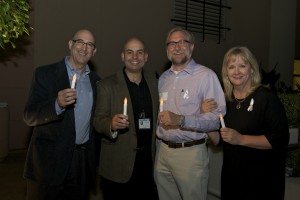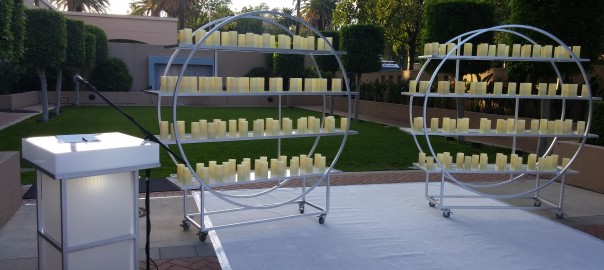Shine a Light on Lung Cancer — Event Recap
I just returned from seeing the folks in my lung cancer support group, where we were treated to a recap of the Shine a Light event from this past weekend. I got to see my speech all the way through for the first time, projected on a big screen in the conference room where we meet, and I’ll admit that I made myself tear up a bit there. It’s like I was speaking directly to me. And it made me realize how much I could have benefited from an actual stylist, but I suppose that is another story.

There were 147 people in attendance for this lovely event; next year I am hoping that we can inspire something new, like a walk organized through Downtown Los Angeles with 1,000 or more people participating. High hopes, perhaps, for an often stigmatized illness. But this is about changing perception and bringing the narrative into the 21st Century.
In the meantime, please consider supporting this petition for increasing research funding, and please share it with your friends and social networks. Nothing progresses without sharing — it is the only way to truly increase awareness. There needs to be a greater discussion around lung cancer, and around cancer in general, so that people can begin to understand what this condition truly is and how it can be safely and effectively lived with when treated early enough and with proper medical care.
Too many people are still living with a fear-based paradigm about cancer, rooted in outdated treatments and late detection. Hollywood is still making movies about what cancer was like decades ago and the scientific journals are too dense or obtuse for laypeople to easily digest. TV personalities like Dr. Oz are still offering false hopes and pseudoscientific claptrap for easy ratings by promoting dietary cures and other nonsense rather than speaking truth about the rise of medical science. In fact, Dr. Oz and his guest Dr. William Li play fairly fast and loose with the notion that the foods they recommend can actually prevent or treat cancer. The sheer volume of food that would have to be consumed to even come close to the results they imply would be difficult to tolerate at best. Continue reading Advocacy and Enlightenment on Lung Cancer


